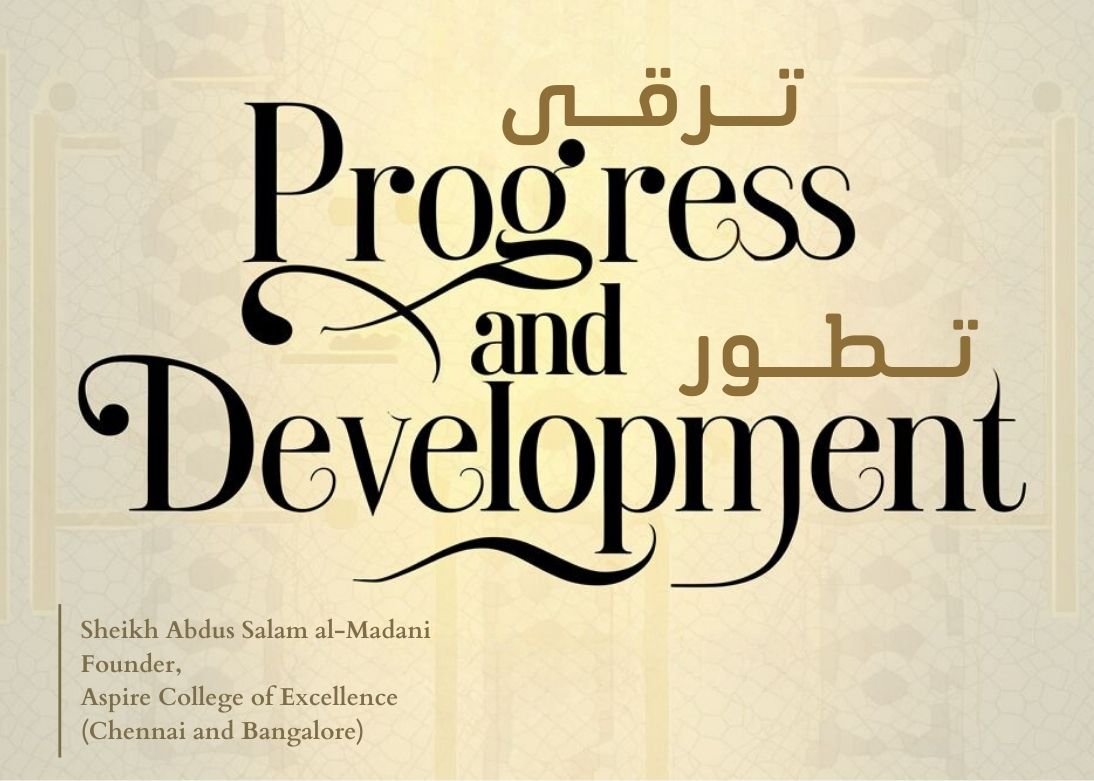
A common question that is asked during these days is whether we can pray Qiyam ul layl privately or in congregation, after having prayed Taraweeh and Witr previously?
This is a very clear cut issue where many of the notable companions, Tabi'een and Scholars such as Imam Malik, Ata Ibn abi Rabah, Shaykh ul Islam Ibn Taymiyyah, Sheikh Bin Baaz, Shaykh Ibn Uthaymeen, and Shaykh Saleh al Fowzan have clarified that night worship or prayer in the night, is extremely beloved to Allah Subhanahu wa ta'ala, and an act entailing great rewards, whether in Ramadan or other than Ramadan; but more so during Ramadan.
Night worship can consist of a few minutes to wholenight.
Qiyaam al-layl is one of the best acts of worship that raises a person in status, increases good deeds, absolves his bad deeds, and brings him closer to the Lord of all creation. Praying qiyaam al-layl is encouraged in the book of Allah, may He be exalted, and in the Sunnah of His Prophet (blessings and peace of Allah be upon him).
The time for praying qiyaam al-layl begins after ‘Isha’ prayer and lasts until the break of dawn. The best of it is the last third of the night.
The scholars of the Permanent Committee said:
The time for praying qiyaam al-layl and Witr is from after ‘Isha’ prayer until the break of dawn.
End quote from Fataawa al-Lajnah ad-Daa’imah (7/225).
Ibn Baaz (may Allah have mercy on him) said:
The time for tahajjud begins after ‘Isha’ and ends with the break of dawn. When the people have prayed ‘Isha’, the time for tahajjud begins and lasts until the break of dawn. The Sunnah is to pray qiyaam al-layl between the end of ‘Isha’ prayer and the break of dawn, even if it is one rak‘ah of Witr.
End quote from Fataawa Noor ‘ala ad-Darb (10/70).
Whatever prayer you offer after ‘Isha’ prayer comes under the heading of qiyaam al-layl. People vary in status in that regard, and their reward will vary according to how long they spend in qiyaam al-layl and other righteous deeds. Whoever prays two rak‘ahs after ‘Isha’, they are regarded as coming under the heading of qiyaam al-layl, but the one who prays two rak‘ahs and Witr after ‘Isha’ is not like one who gets up at night and prays as much as Allah wills that he should pray.
The reward and the virtue are commensurate with the level of the deed.
The Prophet PBUH used to regularly engage in night prayers, whether in Ramadan or other than Ramadan.
We are greatly encouraged by Allah Subhanahu wa ta’ala to do likewise.
Allah Subhanahu wa ta’ala says in the Qur’an:
“And in some parts of the night (also) offer the Salah (prayer) with it (i.e. recite the Quran in the prayer) as an additional prayer (Tahajjud optional prayer Nawâfil) for you” [al-Isra’ 17:79]
“O you wrapped in garments (i.e. Prophet Muhammad)! Stand (to pray) all night, except a little” [al-Muzzammil 73:1-2]
“They used to sleep but little by night [invoking their Lord (Allah) and praying, with fear and hope]” [al-Dhaariyaat 51:17].
Now that we have established the virtue, Sunnah and reward of night prayers, let us see how were the night prayers of our Beloved Prophet PBUH:
Hudhaifah (may Allah be pleased with him) reported:
I prayed with the Prophet (peace and blessings be upon him) one night and he started reciting [surat] Al-Baqarah.
I thought that he would bow at the end of one hundred verses, but he proceeded on; so I thought that he would perhaps recite the whole surah in a rak`ah.
He continued reciting and I had the belief that he would bow on completing the Surah. However, he went on and started [surat] An-Nisaa’ and recited it all.
Then he started [surat] Aal `Imran and recited it.
He recited leisurely: when he reached a verse which referred to the Glory of Allah, he glorified Allah; when he recited a verse that includes a supplication, he would supplicate Allah; and when he came across a verse related to isti`adha (seeking Allah’s protection), he asked Allah for protection.
Then he bowed and repeated (while bowing): ‘Subhana rabbia al-`adheem‘ (Glory be to my Mighty Lord.) His bowing lasted about the same length of his standing time.
(Then, on returning to the standing posture after ruku`) he said: Sami` Allahu liman Hamidah
Rabbana walka al-Hamd
Allah responds to whoever praises Him O Lord, Yours is the praise.
He stood about the same length of time as he had spent in bowing. He then prostrated himself and said: Subhana Rabbia Al-A`la, Glory be to my Lord, the most High.
His prostration lasted nearly the same length of time as his standing. (Muslim)
So due to the impressive length of his Qiyam, Ruku’ and Sujood; much of the night use to elapse even with the offering of fewer Rakahs of prayer.
Today we took his Sunnah of 8 rakahs, but we neglected the Sunnah of the length and beauty of his prayer!
Night prayers are broad in scope, and there is no set number. Whoever wants to pray eleven rak’ahs may do so, and whoever wants to pray more or less than that may do so. The same applies to Taraweeh prayers in Ramadaan.
The minimum number of rak‘ahs for qiyaam is two; there is no maximum limit for it, because of the report narrated by al-Bukhaari (472) and Muslim (749) from ‘Abdullah ibn ‘Umar, who said: A man asked the Prophet (blessings and peace of Allah be upon him) when he was on the minbar: What do you say about the night prayers [qiyaam]? He said: Two [rak‘ahs] by two, then when you fear that dawn is about to break, pray one [rak‘ah] and that will make what you have prayed odd-numbered.”
It is very sad that we find in the Muslim Ummah people who differ concerning matters in which differences of opinion are acceptable, and they take these differences as a means to cause division.
Two groups have gone to extremes with regard to the number of rakahs in night prayers. The first group denounced everyone who prays more than eleven rak’ahs and said that doing so was bid’ah. The second group denounced those who do only eleven rak’ahs and said that they are going against scholarly consensus (ijma’).
How can more than 8 be bid’ah when the Prophet (peace and blessings of Allah be upon him), upon being asked about night prayers, said that they are to be done two by two , and he did not specify any particular number?
The Prophet PBUH while advising to pray two by two by two until the approach of dawn, told him how to do it but did not say how many times; it may be understood that the matter is broad in scope, and that a person may pray one hundred rak’ahs then pray Witr with one rak’ah.
Whatever the case, a person should not be strict with people with regard to a matter that is broad in scope. We have even seen some brothers who are strict on this matter accusing the imams who pray more than eleven rak’ahs of following bid’ah, and they leave the mosque, thus missing out on the reward of which the Messenger of Allah (peace and blessings of Allah be upon him) said: “Whoever stands with the imam until he finishes (the prayer), the reward of qiyam al-layl will be recorded for him.” (Narrated by al-Tirmidhi, 806; classed as sahih by al-Albani in Sahih al-Tirmidhi, 646).
With regard to the evidence quoted by those who say that it is not permissible to do more than eight rak’ahs in Taraweeh, they quote the hadeeth of Abu Salamah ibn ‘Abd al-Rahman, who asked ‘Aishah (may Allah be pleased with her), “How did the Messenger of Allah (peace and blessings of Allah be upon him) pray during Ramadan?” She said: “He did not pray more than eleven rak’ahs in Ramadan or at other times. He would pray four, and do not ask how beautiful and long they were, then he would pray four, and do not ask how beautiful and long they were, then he would pray three. I said, ‘O Messenger of Allah, will you sleep before you pray Witr?’ He said, ‘O ‘Aishah, my eyes sleep but my heart does not.’” (Narrated by al-Bukhari, 1909; Muslim, 738)
They said: This hadith indicates that the Messenger of Allah was consistent in his prayers at night in Ramadan and at other times.
The scholars refuted this use of the hadith as evidence by saying that this is what the Messenger of Allah (peace and blessings of Allah be upon him) did, but it doesn’t mean that performing more Rak’ahs as Nafil is not allowed.
Also, because of the length of standing, bowing and prostration, it was difficult to recite more rak'ahs .
Long or short recitation in tarawih?
The point is that the one who prays eleven rak’ahs in the manner narrated from the Prophet (peace and blessings of Allah be upon him) is doing well and is following the Sunnah. Whoever makes the recitation shorter and increases the number of rak’ahs is also doing well. A person who does either of these two things is not to be denounced.
Shaykh al-Islam Ibn Taymiyah said:
If a person prays Tarawih according to the madhhabs of Abu Hanifah, al-Shafi’I and Ahmad, with twenty rak’ahs, or according to the madhhab of Malik, with thirty-six rak’ahs , or with thirteen or eleven rak’ahs, he has done well, as Imam Ahmad said, because there is nothing to specify the number. So the greater or lesser number of rak’ahs depends on how long or short the qiyam (standing in the prayer) is. (Al-Ikhtiyarat, p. 64)
Another matter that needs to be clarified is wether it is allowed to read night prayers after finishing Witr Salah?
There is nothing wrong with the person who prays Witr in the first part of the night or the middle of the night offering any naafil prayers he wants after Witr, even though it is recommended that last of his prayer at night to be Witr. In this case he should not repeat Witr, rather the Witr that he prayed at the beginning of the night is sufficient.
It was narrated that ‘Abd-Allaah ibn ‘Umar said: The Messenger of Allaah (peace and blessings of Allaah be upon him) said: “Make the last of your prayer at night Witr.” Narrated by al-Bukhaari, 998; Muslim, 749.
And it was narrated that that Talq ibn ‘Ali said: I heard the Messenger of Allaah (peace and blessings of Allaah be upon him) say, “There should not be two Witrs in one night.” Narrated by al-Tirmidhi, 470; al-Nasaa’I, 1679; Abu Dawood, 1439. Classed as saheeh by Shaykh al-Albaani in Saheeh al-Jaami’, 7567.
Ibn Hazm said in al-Muhalla, 2/92, 93:
Witr at the end of the night is better, but whoever prays Witr at the beginning of the night, that is fine. It is permissible to pray after Witr but one should not repeat Witr.
Evidence for this is the following hadith:
It was narrated that Jaabir (may Allah be pleased with him) said: The Messenger of Allah (blessings and peace of Allah be upon him) said: “Whoever fears that he will not get up at the end of the night, let him pray Witr at the beginning. Whoever is sure that he will get up at the end of the night, let him pray Witr at the end, for prayer at the end of the night is witnessed, and that is better.” Narrated by Muslim (755).
Al-Nawawi said in al-Majmoo, 3/512:
If a person prays Witr then he wants to offer a naafil prayer etc at night, that is permissible and is not makrooh, but he should not repeat Witr. The evidence for that is the hadeeth of ‘Aa’ishah (may Allaah be pleased with her) who was asked about the Witr of the Messenger of Allaah (peace and blessings of Allaah be upon him). She said: “We used to prepare his siwaak (tooth stick) and water for wudoo’ for him, then Allaah would cause him to wake up at any time He willed at night. He would use the tooth stick, do wudoo’ and pray nine rak’ahs, in which he would not sit except in the eighth, when he would remember Allaah, glorify Him and make du’aa’. Then he would get up without saying salaam, and pray the ninth rak’ah. Then he would sit down and again remember Allaah, glorify Him and make du’aa’. Then he would say a salaam that we could hear, then he would pray two rak’ahs after that, whilst sitting down.” Narrated by Muslim; this is part of a lengthy hadeeth, which is to be understood as meaning that the Prophet (peace and blessings of Allaah be upon him) prayed two rak’ahs after Witr to show that it is permissible to pray after Witr.
Which of the two options are better?
Witr after taraweeh, or witr towards the latter part of the night?
Either of the two options can be followed by you according to your preference. You can combine all these good deeds, by doing one of the two following things:
1 – Pray Witr with the imam, then when you can do tahajjud after that, pray whatever Allaah wills for you, two by two rak’ahs, without repeating Witr, because one cannot pray two Witrs in one night.
2 – Delay Witr until the end of the night. When the imam says the salaam at the end of Witr, do not say the salaam with him, rather stand up and do an extra rak’ah, so that your Witr will then be at the end of the night.
Shaykh Ibn Baaz (may Allaah have mercy on him) was asked: When some people pray Witr with the imam and the imam says the salaam, they stand up and do another rak’ah so that their Witr will be at the end of the night. What is the ruling on doing this? Is it regarded as finishing the prayer with the imam?
He replied:
We do not know of there being anything wrong with this. The scholars stated that there is nothing wrong with doing that so that one will pray Witr at the end of the night. It is still true that he has stood with the imam until he finishes, because he stayed with him until the imam finished, then he prayed an extra rak’ah for a legitimate shar’I purpose, so that his Witr will be at the end of the night. There is nothing wrong with that, and that does not mean that he did not stay with the imam, rather he stayed with the imam until he finished, but then he did not finish with him, rather he delayed a little. End quote.
Majmoo’ Fataawa Ibn Baaz, 11/312
These are some of the issues or non-issues, in which our youth are embroiled in discussing and debating during Ramadan. I have clarified it with clear evidences and I hope it will help us to understand the matter, and enable us to increase in Ibadah during Ramadan.
Sheikh Abdus Salam al-Madani
Founder and Dean,
Aspire College of Excellence (Chennai and Bangalore)
Comments (0)
Categories
Recent posts


Era of Arrogance
6 Feb 2024
Tears of a Man
13 Feb 2024
GST or Zakah
9 Apr 2024




